Parmesan-delicious, but expensive: the passion of English sailors for Italian cheese
Categories: Europe | Food and Drinks | History | Nations
By Pictolic https://pictolic.com/article/parmesan-delicious-but-expensive-the-passion-of-english-sailors-for-italian-cheese.htmlWith the beginning of sea voyages, the issue of food was a serious problem for European sailors. In the damp and stuffy ship's holds, the products quickly deteriorated and rotted. While the voyage was coasting, that is, along the coast, the sailors diluted the rotten water with beer and wine, and the basis of the sailors ' menu was crackers, corned beef and boiled beans. When the ships began to go from continent to continent, they needed more, as they would say today, energy-valuable products. Italian Parmesan was perfect for this purpose.
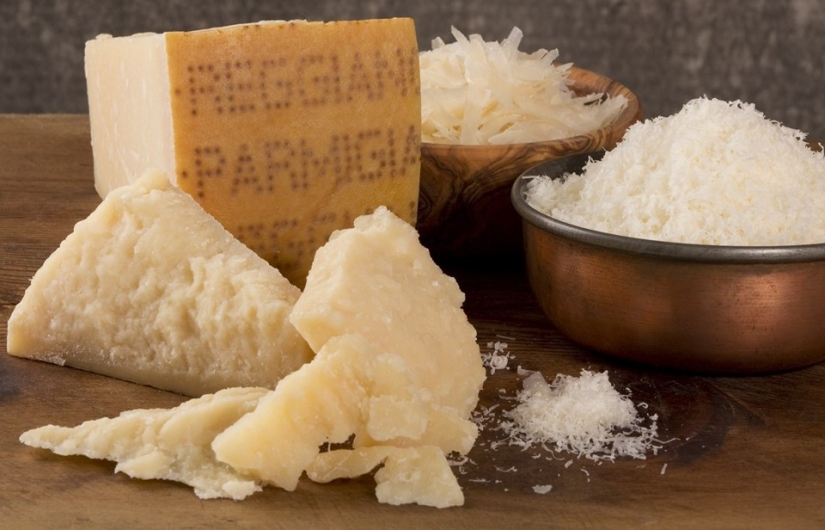
Parmesan cheese is one of the symbols of Italy. It was invented in the Middle Ages, and where exactly – disputes are still going on. The town of Reggio Emilia and neighboring Parma, which are only 40 kilometers apart, claim to be the birthplace of Parmesan. There were monasteries with monks who cooked cheese, excellent pastures for grazing cows and salt extracted in the Salsomaggiore area. All the ingredients of excellent cheese are in place.
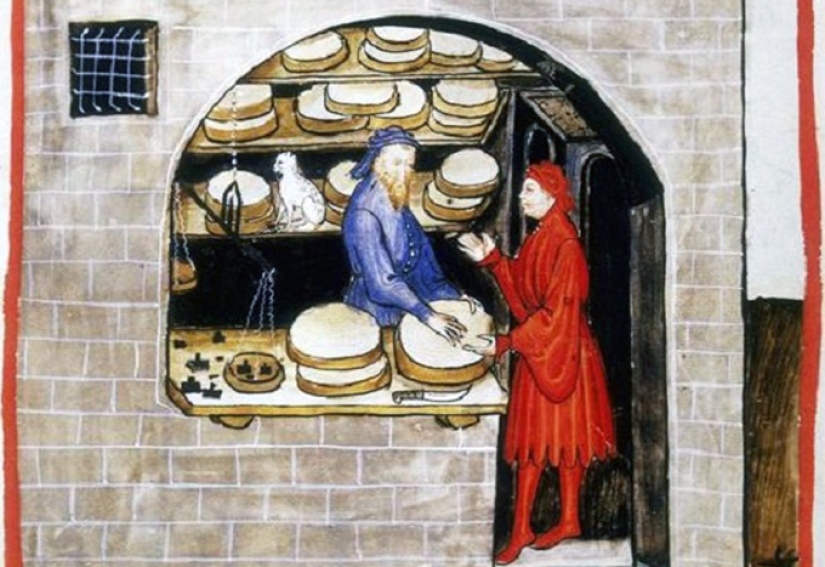
A shop selling parmesan cheese. Medieval miniature
Parmesan is a delicious and nutritious cheese. There are twice as many proteins in it as in a similar-sized piece of beef. There are a lot of fats, phosphorus and vitamins in the product. The mass is small, and the taste, benefits and, most importantly, nutritional value-the maximum.
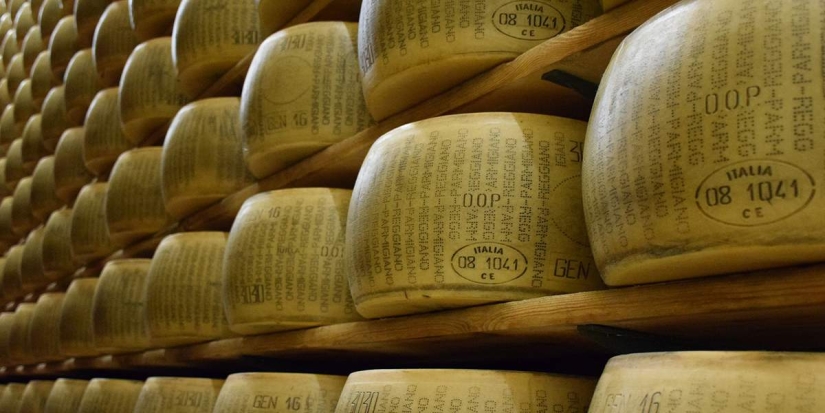
By the XIV century, parmesan was already famous for its taste and was called the "king of cheeses" or "ideal food". However, the sailors were attracted not only by the taste of the product. If the other cheeses in the ship's raw hold quickly turned moldy and spoiled, then parmesan did not. The fungus affected the cheese head, but did not penetrate deep into it.
In England, parmesan was known, but it cost crazy money. During the Great Fire of London, citizens, along with money and fabrics, buried expensive wines and Italian cheese in the ground. In the XVI century, England began to win the formidable title of "Queen of the seas". I urgently needed my own analogue of expensive Italian Parmesan. There was nothing to choose from and in 1580 the Royal Navy began purchasing cheese from Ipswich, Suffolk.
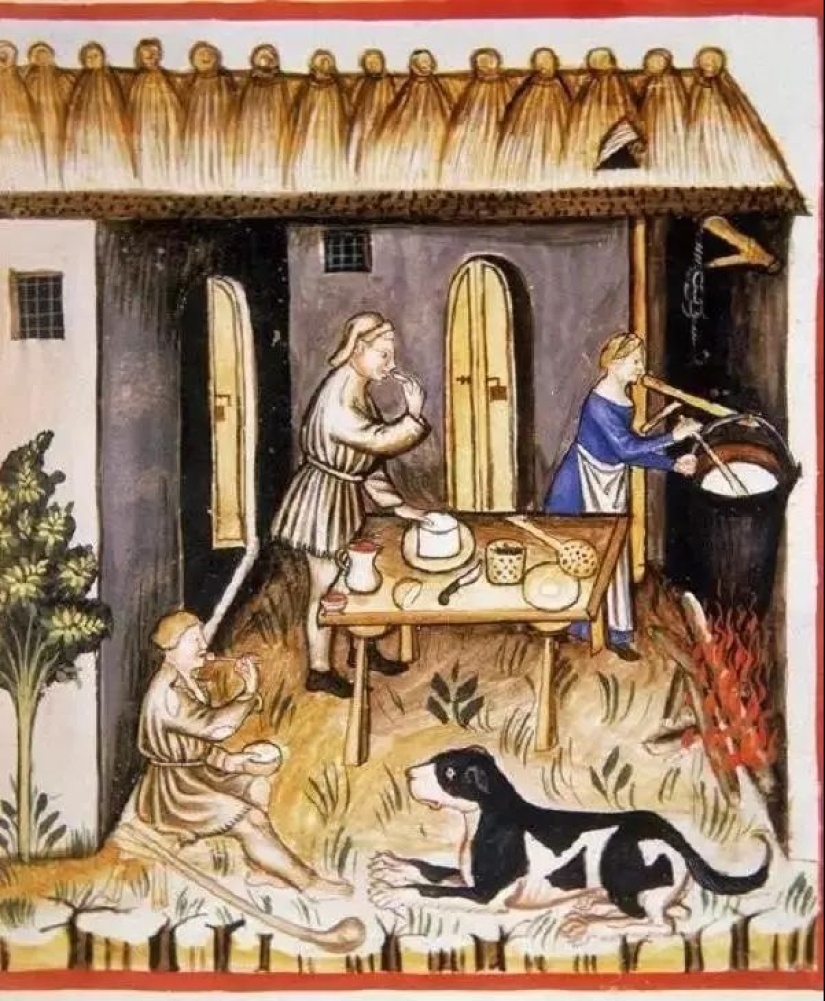
Preparation of cheese. Medieval miniature
The cheese was made from skimmed milk waste, which the unpretentious English cheese makers mercilessly salted. The result of culinary attempts was the cheese, which was nicknamed Suffolk Bang, which can literally be translated as "Suffolk shock". Scary on the outside and tasteless on the inside, it was hard as a stone.
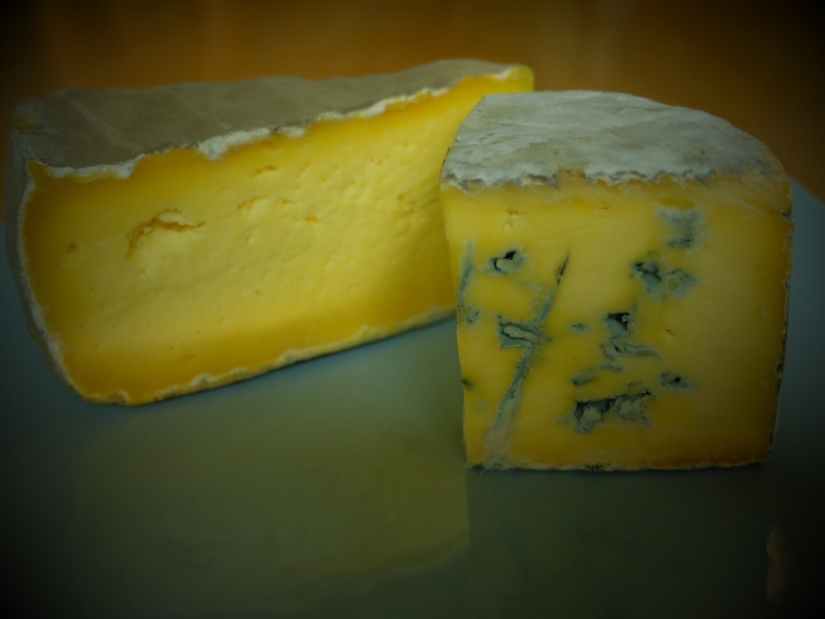
The English said that the cheese from Suffolk was "hard as the devil" and its head could be put on a cart together with the wheels. They considered it the food of servants and common people. It is difficult to gnaw such cheese even for ship rats, and before using a piece of Suffolk was melted over the fire and eaten together with breadcrumbs and salted meat. The cheese days in the English Navy were Wednesday, Friday and Saturday.
There were advantages to this cheese that outweighed all the disadvantages. It was cheap and, in comparison with cheddar, did not spoil for a long time. However, the "stone" from Suffolk still lost to the Italian Parmesan. For a month of being in the hold, it became moldy and rotted, after which worms were started in it. In the holds of ships captured during naval battles, English sailors found cheese that turned out to be tastier and better than domestic-it was parmesan.

Corned beef, which the sailors of the past ate
The Netherlands has always been famous for its cheeses – gouda and emmentaler have an excellent taste, but they are creamy, which means they are perishable. The Dutch, being excellent traders, bought parmesan at a discount in Italy.

In the British Navy, parmesan was eaten only by officers, and among the rank and file it was considered a real delicacy. It's not for nothing that the character of "Treasure Island", the former pirate Ben Gunn, begs to give him a small piece of parmesan and gave all the jewelry for it.

Since 1758, the Royal Navy of England has spared its sailors from the "Suffolk shock" in favor of edible Cheshire and Gloucester cheeses. By the 19th century, British cheesemakers had made decent cheese for the navy and parmesan turned into a delicacy not related to maritime affairs.
Keywords: England | Sailor | Sailors | Netherlands | Cheese | Fleet
Post News ArticleRecent articles

It's high time to admit that this whole hipster idea has gone too far. The concept has become so popular that even restaurants have ...

There is a perception that people only use 10% of their brain potential. But the heroes of our review, apparently, found a way to ...
Related articles

In the Victorian era Britain was quickly urbanized. By 1851 it became the first country lived in cities of more people than in the ...

The Reverend Lewis Carroll, aka Charles Lutwidge Dodgson, left behind wonderful children's books and, as befits a Victorian ...

In September 1905 a small English town of Wickford, Essex, was shaken by a horrible event. 24-year-old wife of the priest of the ...

New Year's is a time to surprise and delight loved ones not only with gifts but also with a unique presentation of the holiday ...